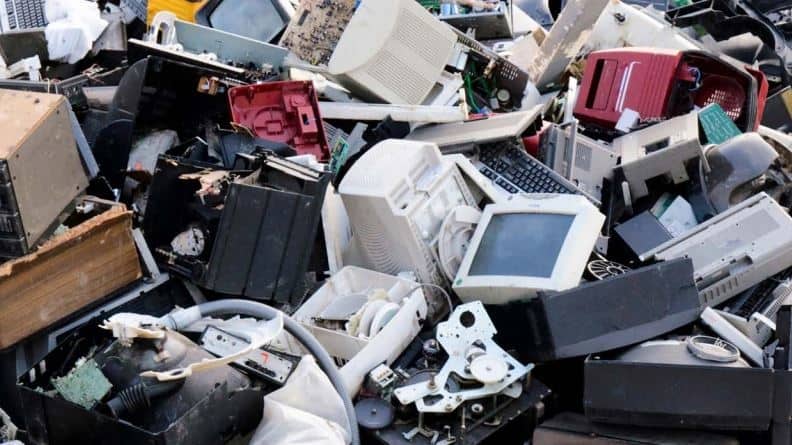A don, Prof. Adekunle Bakare, has called for the implementation of genetic safety evaluation assessment protocol to reduce about 500,000 tonnes of electrical and electronic wastes being imported into Nigeria monthly.
Bakare, a Professor of Genetics Toxicology at the University of Ibadan, made the call while delivering the institution’s inaugural lecture.
His lecture was entitled ‘Environmental Xenobiotics and Biological Spiral Staircase: For Good or for ill.”
The don said that education on the safekeeping of the environment and sustainable waste management was key to the stemming advent of unknown diseases caused by genetic mutations.
Bakare said from research “ an average of 500,000 tonnes of obsolete waste electrical and electronic equipment are imported into Nigeria monthly.”
“The impact of this coupled with waste dumped on the road median, open space and those in landfills constitute an environmental hazard.
“You will see that in Nigeria today, people talk of new diseases that they seem not to be able to explain.
“Most of these are not far fetched from the environment; they have to do with what you eat, what you use, the cosmetics, metals from industries, things that come from waste affect our water tables,” he said.
The professor of cellular and molecular toxicology said when wastes decompose, rainfall and the decomposed materials, which are toxic because they contain organic and inorganic materials, affect water sources and become harmful to humans, animals and plants.
He said further that when chemicals react with the genetic system, this affects the DNA code, which may be bad for the environment and consequently for living things.
The don advocated compulsory teaching of genetics studies from secondary school level as well as environmental awareness of mutagens and carcinogens in Nigeria.
He also warned Nigerians against self-medication and indiscriminate use of drugs which he noted could alter their genetic system.
Bakare, a geneticist at the Department of Zoology, said this could lead to diseases such as cancer, organ failure and diabetes.
He enjoined regulatory agencies in the country to include genetics safety protocols before any substance, product or waste is released into the Nigerian environment.
“Standard genetic and molecular biology laboratories for this assessment should be established in all the zones of the country for easy and faster assessment,” Bakare said.




 Premier League
Premier League